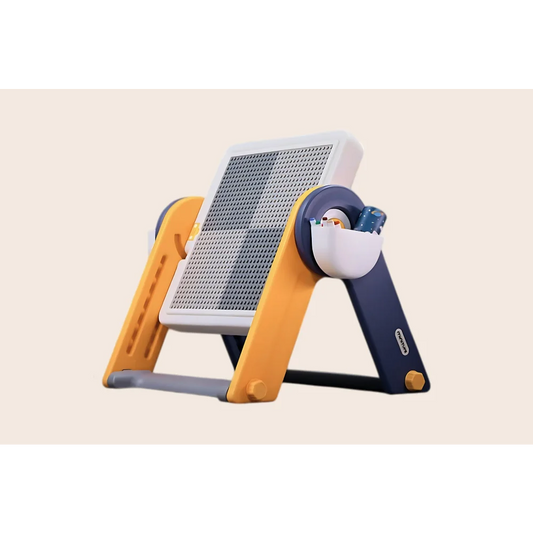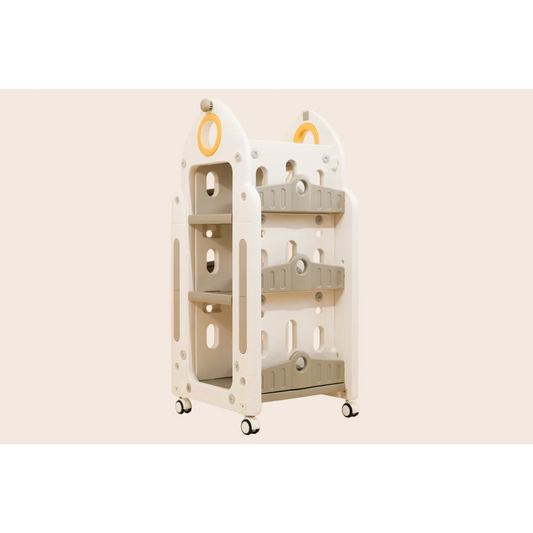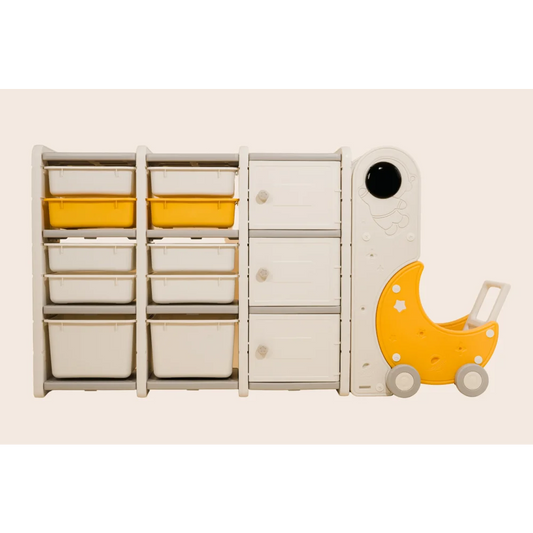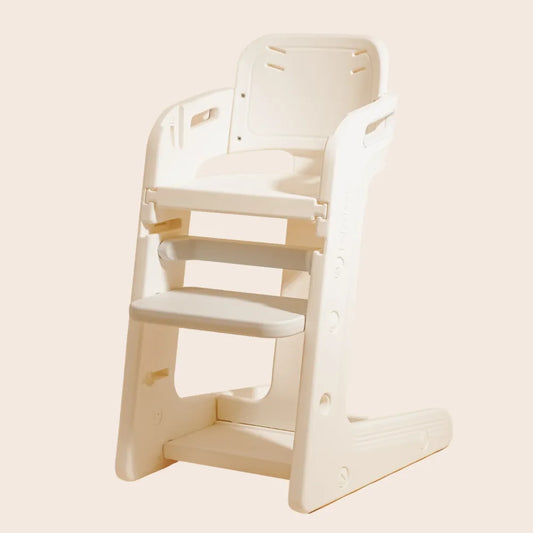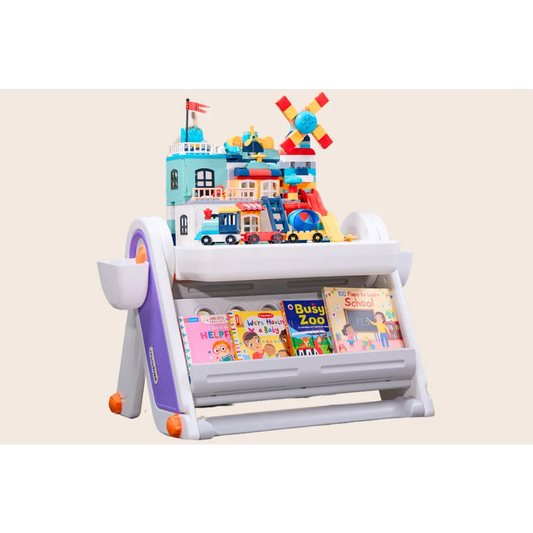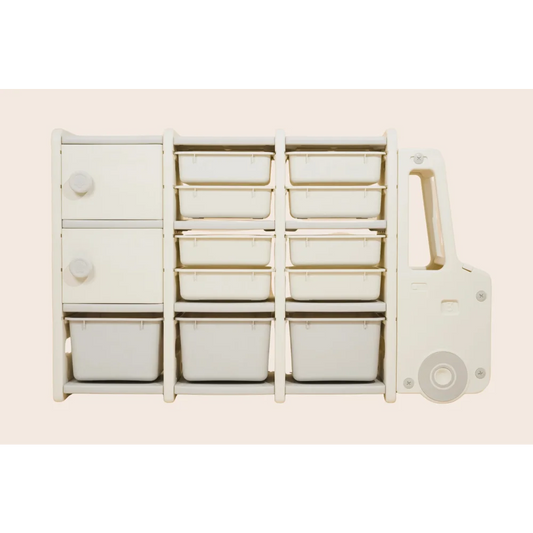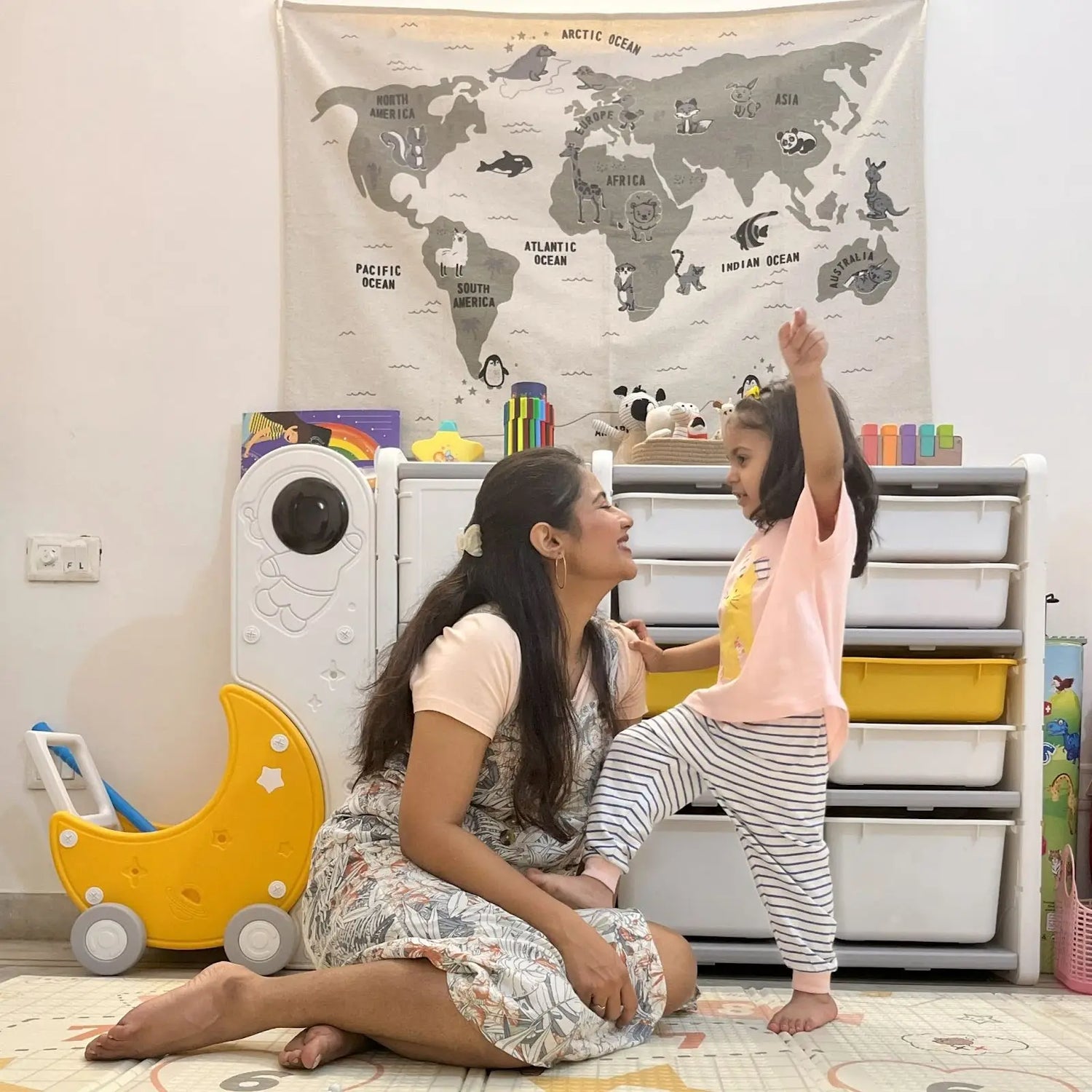
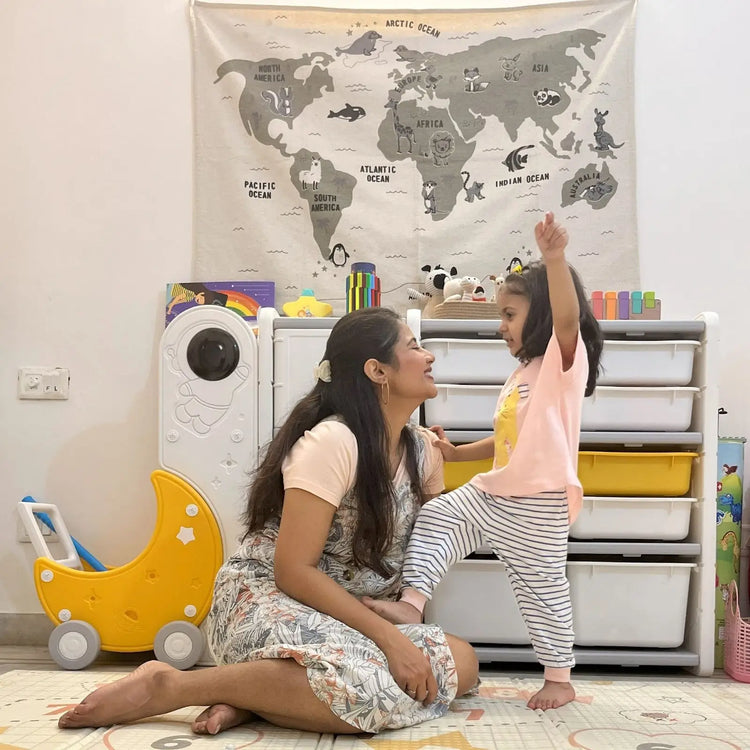
New Year, New Goals: Building Habits Around Organization
The New Year always feels like a fresh notebook, crisp and full of possibilities. At the beginning of last year when I watched my little one exclaim “Happy New Year!”, I couldn’t help but think about the habits I wanted to help them build. One habit that stood out to me was organization, not just for the sake of tidying up but to teach them responsibility and mindfulness in small, manageable ways.
I used to think getting kids to stay organized required grand plans or rigid schedules, but I’ve learned the secret lies in starting small.
Starting small with tiny habits
I recently read about the idea of "tiny habits," inspired by BJ Fogg’s method, he says, "when something is tiny, it’s easy to do - which means you don’t need to rely on the unreliable nature of motivation.” It’s a simple yet powerful approach, start so small that it’s impossible to fail. When it comes to kids, this method is a game-changer.
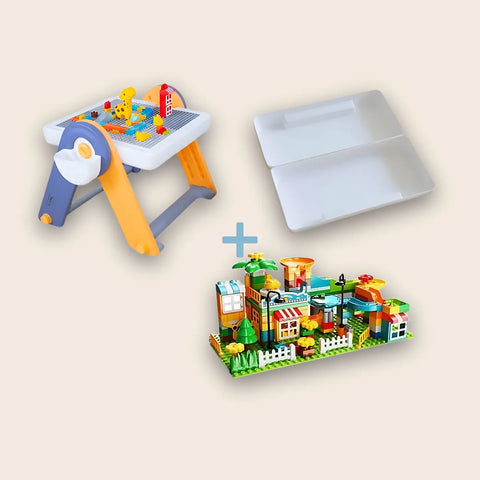
For instance, something as straightforward as “put one toy away before bedtime” or “spend five minutes tidying up before leaving the room” can create a ripple effect. These little steps don’t feel like chores to kids, they’re achievable and even fun. It helped us achieve consistency.
We later started using Fogg's Behavior Grid Chart to keep track of desirable habits. Remember, you can simplify and modify it according to your needs!
A general tip for all ages is to start tiny and focus on one toy, one action, or one minute of a task. It is important to anchor habits by linking new actions to existing routines like meals, naps, or screen time - for example, after snack time, guide your child to put their plate in the sink.
One practice I’ve found helpful is habit stacking, pairing a new habit with an existing one. For example, after dinner, my little one knows it’s time to put their pajamas in the hamper. Or right before storytime, we do a quick “toy check,” where we make sure everything is back in its place. Using a chore chart helped me and my kids keep track.This kind of predictable structure makes it easier for them to remember, and honestly, it makes my life a lot smoother too.
Be flexible and fun! Let children choose tasks or add playful elements (e.g., a "cleanup race"), to make sure it doesn't feel like a chore. You can also use organizers, low shelves, or labeled bins to make building habits easier. Remember to reinforce positive behaviour through clapping, hugs, stickers, or verbal praise to celebrate small wins.
The power of consistency and encouragement
Consistency is where the magic happens. At first, there were days when things didn’t go as planned, toys still scattered on the floor or books half-sorted. But I learned to approach those moments with patience and positive reinforcement. Instead of focusing on what wasn’t done, focus on what was!
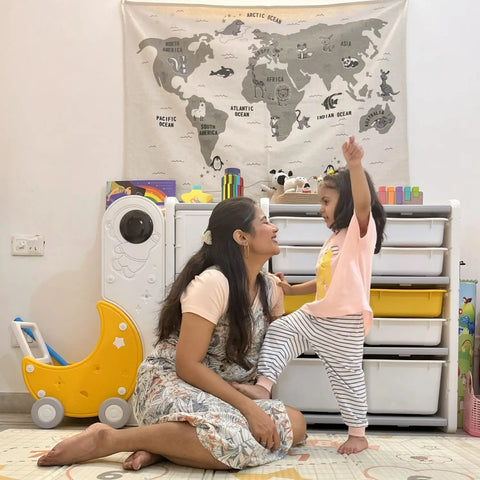
Making organization fun and engaging
Making organization fun has also been a big part of our journey, it ensures that the children feel engaged. I introduced a car-shaped organizer for Kids. Another fun option could be the Space themed cabinet. Toy organizers are great for instilling a habit to clean their room as they form the focal point of their room where toys are a cherished belonging of a child. A place to store every piece they own is a great way to instill that habit.
Another lifesaver has been choosing toys that are easy to manage. Our foldable slide, for example, is a hit not just during playtime but also when it’s time to put things away. It folds up neatly, so there’s no hassle, and my little one enjoys helping me with it.
Starting the year on a positive note
As we step into this New Year, I’m reminded that building habits takes time and patience, for both kids and parents. But with tiny, consistent steps and a touch of creativity, it’s absolutely possible to make organization a fun and rewarding part of daily life.
So, here’s to embracing those tiny habits and watching them grow. After all, it’s not just about tidy rooms, it’s about fostering independence, responsibility, and a sense of pride in our little ones. And honestly, that’s a goal worth working toward every day.
